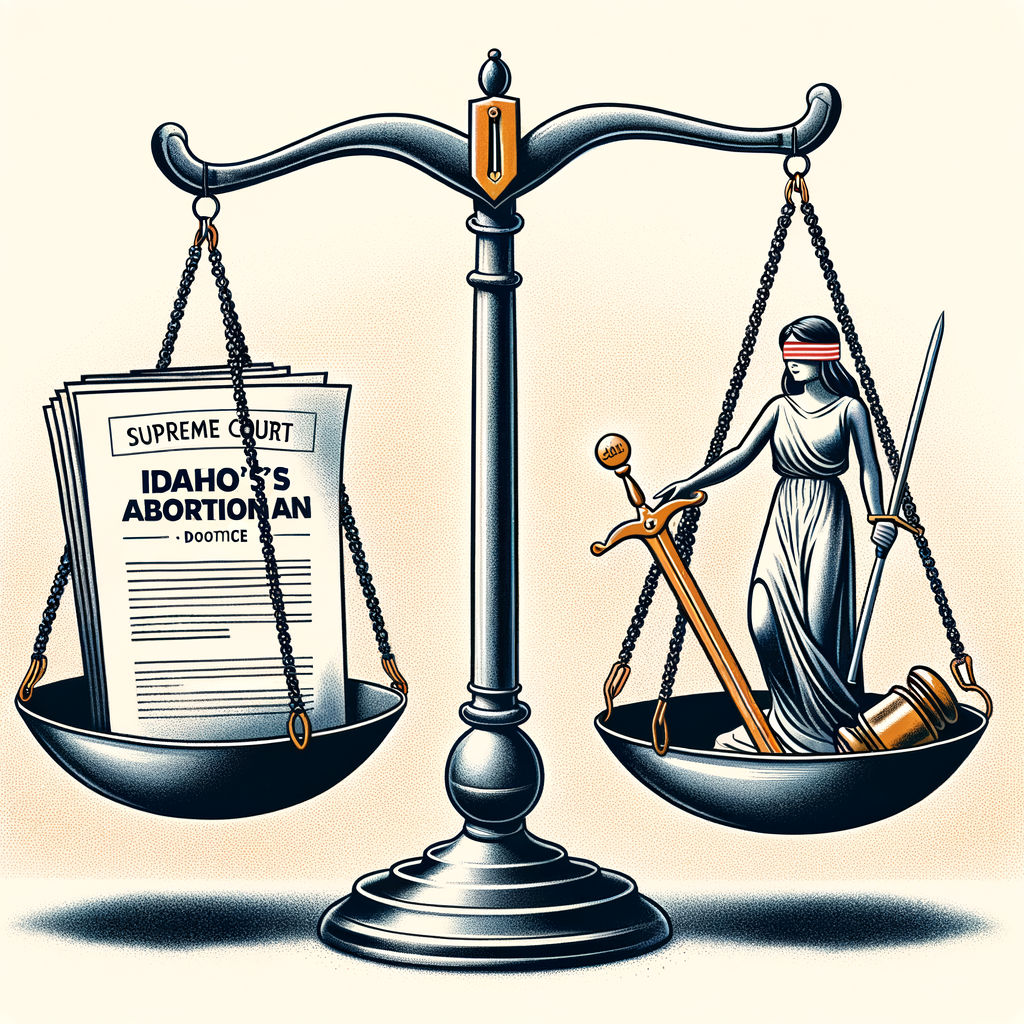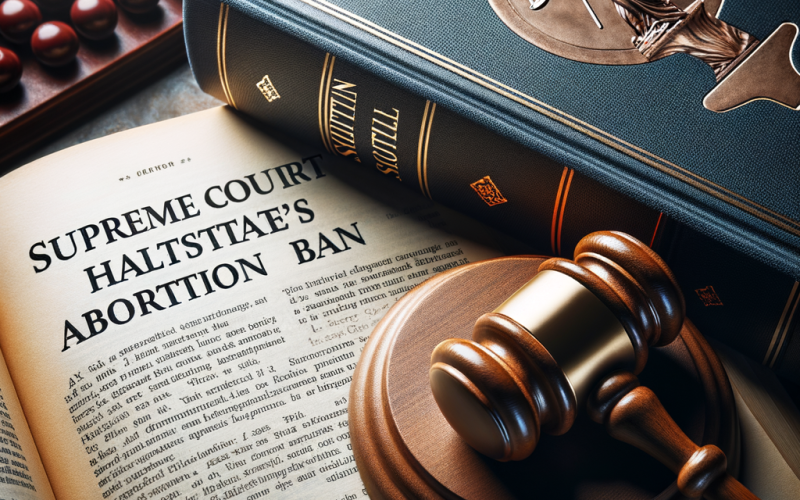Introduction
In a pivotal decision, the Supreme Court has temporarily halted Idaho’s near-total abortion ban, setting a significant precedent in the ongoing legal battle over reproductive rights in the United States. This article provides an in-depth analysis of the Supreme Court’s ruling, its implications for Idaho’s abortion laws, and the larger context of the abortion debate.
Background: Idaho’s Abortion Ban
In 2020, the Idaho legislature passed a restrictive abortion bill, known as the “Idaho Human Heartbeat Protection Act,” which prohibited abortions after six weeks of gestation, with limited exceptions for rape, incest, or medical emergencies. The law was among the most stringent abortion restrictions in the nation and faced immediate legal challenges.
In March 2023, the U.S. Court of Appeals for the Ninth Circuit upheld an injunction blocking the law from taking effect, ruling that it was likely unconstitutional under the Supreme Court’s 1973 Roe v. Wade decision, which established the constitutional right to abortion.
Supreme Court’s Emergency Ruling
On April 10, 2023, the Supreme Court granted an emergency application by abortion providers in Idaho, allowing them to continue performing abortions while the underlying lawsuit challenging the ban proceeds in the lower courts. The Court’s brief order did not provide detailed reasoning but noted that the justices would consider the case in greater depth at a later date.
Immediate Impact
The Supreme Court’s ruling provides immediate relief to women in Idaho who may need access to abortion care. The injunction prevents the state from enforcing the abortion ban while the legal challenge continues. Abortion providers can now resume performing abortions up to 22 weeks of gestation, which was the previous legal limit in Idaho.

Implications for Idaho’s Abortion Laws
The Supreme Court’s ruling does not permanently block Idaho’s abortion ban. However, it signifies a significant setback to the state’s efforts to restrict access to abortion services. The underlying lawsuit challenging the ban will continue in the lower courts, and its outcome will ultimately determine the fate of Idaho’s abortion laws.
National Implications
The Supreme Court’s emergency ruling has broader implications for the abortion debate in the United States. It demonstrates that the Court remains reluctant to uphold overly restrictive abortion laws, even as several states have passed such measures in recent years. The ruling may embolden abortion rights advocates and provide a roadmap for legal challenges to similar laws in other states.
The Ongoing Debate
The Supreme Court’s ruling underscores the deeply polarizing nature of the abortion debate in the United States. Pro-life and pro-choice advocates have sharply differing views on the legality and morality of abortion, and these views are reflected in the legal and political battles over reproductive rights.
Legal Challenges Ahead
Idaho’s abortion ban is one of several state laws that have faced legal challenges since the Supreme Court overturned Roe v. Wade in June 2022. Other states, including Texas, Mississippi, and Louisiana, have also implemented restrictive abortion laws that are being contested in the courts. The Supreme Court’s ultimate rulings on these cases will have a profound impact on the availability of abortion services nationwide.
Conclusion
The Supreme Court’s emergency ruling in Idaho is a significant development in the ongoing legal battle over abortion rights in the United States. It temporarily halts Idaho’s near-total abortion ban and provides immediate relief to women in the state. However, the underlying lawsuit challenging the ban will continue, and its outcome will ultimately determine the fate of Idaho’s abortion laws. The Supreme Court’s ruling also has broader implications for the abortion debate nationally, as it suggests that the Court remains hesitant to uphold overly restrictive abortion laws. The ongoing legal challenges to state abortion bans will likely shape the future of reproductive rights in the United States for years to come.










